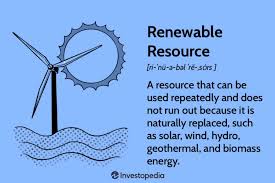The Impact of Coal as a Non-Renewable Source of Energy
Coal has long been a cornerstone of global energy production, powering industries and homes for centuries. However, its status as a non-renewable source of energy raises significant environmental concerns.
One of the main issues with coal is its contribution to air pollution and greenhouse gas emissions. When coal is burned for energy, it releases harmful pollutants such as sulfur dioxide, nitrogen oxides, and carbon dioxide into the atmosphere. These pollutants can have serious health effects on humans and contribute to climate change.
Furthermore, the mining and extraction of coal can have devastating effects on local ecosystems. Mountaintop removal mining, for example, involves clearing forests and blasting away mountaintops to access coal seams. This process can destroy habitats, pollute water sources, and disrupt wildlife populations.
In addition to its environmental impacts, coal also poses challenges in terms of resource depletion. As a non-renewable resource, coal reserves are finite and will eventually be exhausted. This raises concerns about energy security and the need to transition to more sustainable sources of power.
Despite these challenges, efforts are being made to reduce the environmental impact of coal through technologies like carbon capture and storage (CCS) and cleaner burning processes. However, the long-term solution lies in transitioning towards renewable sources of energy such as solar, wind, and hydropower.
In conclusion, while coal has played a significant role in meeting global energy demands, its status as a non-renewable source poses serious environmental challenges. It is imperative that we prioritize sustainability and invest in cleaner, renewable alternatives to ensure a greener future for generations to come.
6 Essential Tips to Conserve Non-Renewable Energy and Embrace Sustainability
- Conserve energy by turning off lights and appliances when not in use.
- Invest in energy-efficient appliances to reduce consumption of the non-renewable source.
- Explore alternative renewable energy sources like solar or wind power.
- Support policies that promote sustainable energy practices and reduce dependence on non-renewable sources.
- Educate others about the importance of conserving non-renewable energy resources for future generations.
- Consider carpooling, biking, or using public transportation to reduce reliance on fossil fuels for transportation.
Conserve energy by turning off lights and appliances when not in use.
Conserving energy by turning off lights and appliances when not in use is a simple yet effective way to reduce our reliance on non-renewable sources of energy. By being mindful of our electricity consumption habits, we can minimize the need for power generated from sources like coal and natural gas, which have significant environmental impacts. Taking small actions such as switching off lights and unplugging devices when they are not needed can contribute to a more sustainable energy future and help protect our planet for future generations.
Invest in energy-efficient appliances to reduce consumption of the non-renewable source.
Investing in energy-efficient appliances is a practical and effective way to reduce our consumption of non-renewable energy sources. By choosing appliances that are designed to operate more efficiently, we can significantly decrease our overall energy usage, thereby lessening the demand for non-renewable resources like coal or natural gas. Energy-efficient appliances not only help us save money on utility bills but also contribute to a more sustainable future by lowering our environmental impact. Making this simple switch can have a positive ripple effect on both our personal finances and the health of the planet.
Explore alternative renewable energy sources like solar or wind power.
Exploring alternative renewable energy sources like solar or wind power is a proactive step towards reducing our reliance on non-renewable sources of energy such as coal or oil. Embracing solar and wind power not only helps to mitigate environmental impacts associated with fossil fuels but also promotes sustainability and energy independence. By harnessing the power of the sun and wind, we can generate clean electricity with minimal carbon emissions, contributing to a greener future for our planet and future generations.
Support policies that promote sustainable energy practices and reduce dependence on non-renewable sources.
Supporting policies that promote sustainable energy practices and reduce dependence on non-renewable sources is crucial for a greener and more sustainable future. By advocating for initiatives that incentivize the use of renewable energy sources such as solar, wind, and hydropower, we can help mitigate the environmental impact of non-renewable sources like coal and oil. These policies play a key role in accelerating the transition towards cleaner energy alternatives, fostering innovation in the renewable energy sector, and building a more resilient energy infrastructure for generations to come.
Educate others about the importance of conserving non-renewable energy resources for future generations.
It is crucial to educate others about the significance of conserving non-renewable energy resources for the benefit of future generations. By raising awareness about the finite nature of resources like coal, oil, and natural gas, we can promote responsible energy consumption practices and encourage the adoption of renewable alternatives. Through education and advocacy, we can inspire individuals and communities to make informed choices that prioritize sustainability and ensure a more resilient energy future for generations to come.
Consider carpooling, biking, or using public transportation to reduce reliance on fossil fuels for transportation.
Consider carpooling, biking, or using public transportation as sustainable alternatives to reduce reliance on fossil fuels for transportation. By sharing rides, cycling, or utilizing public transit, individuals can help decrease the consumption of non-renewable energy sources like gasoline and diesel. These eco-friendly transportation options not only contribute to reducing carbon emissions and air pollution but also promote a more sustainable and greener way of commuting that benefits both the environment and personal well-being. Making small changes in how we travel can have a positive impact on conserving finite resources and mitigating the effects of climate change.

